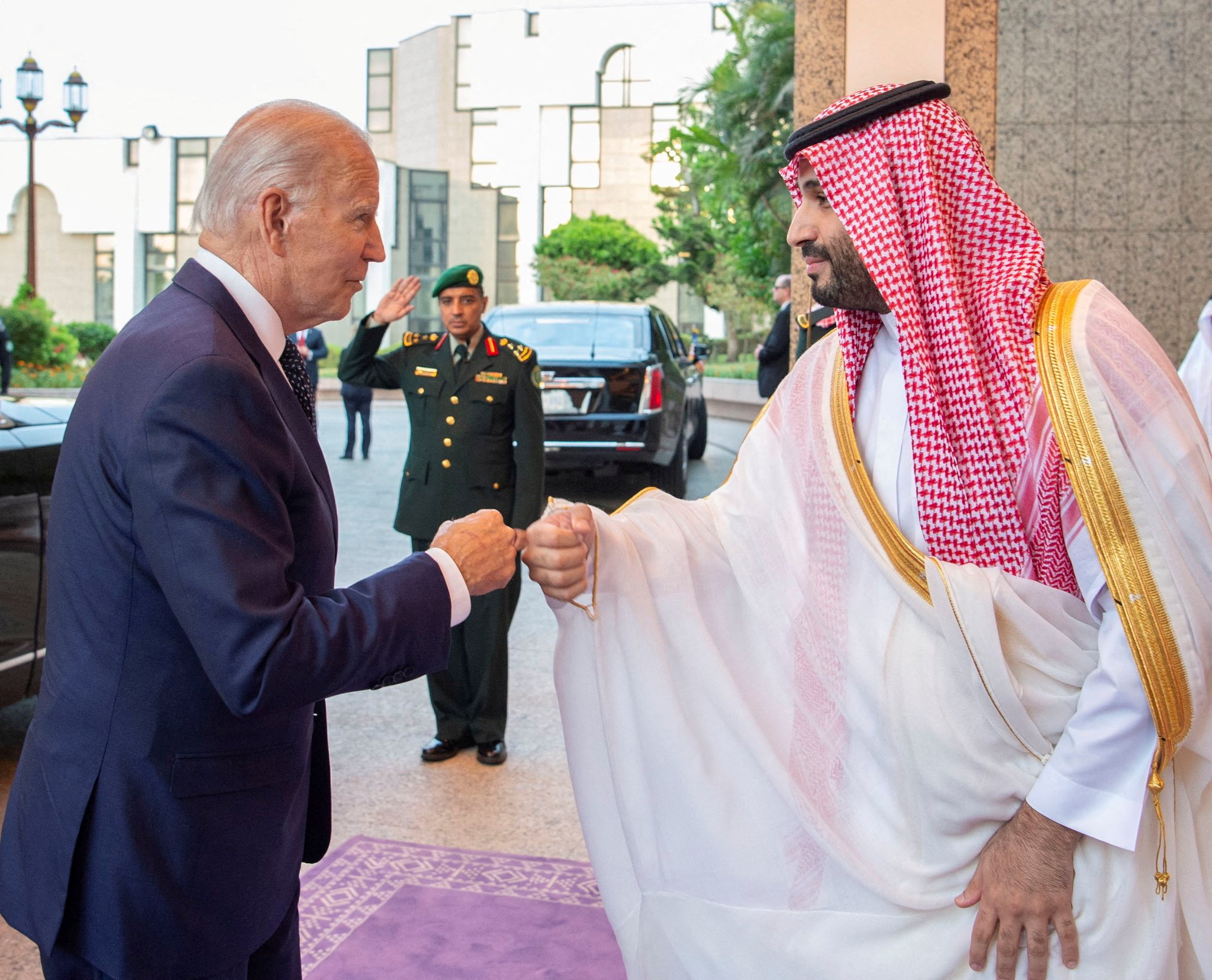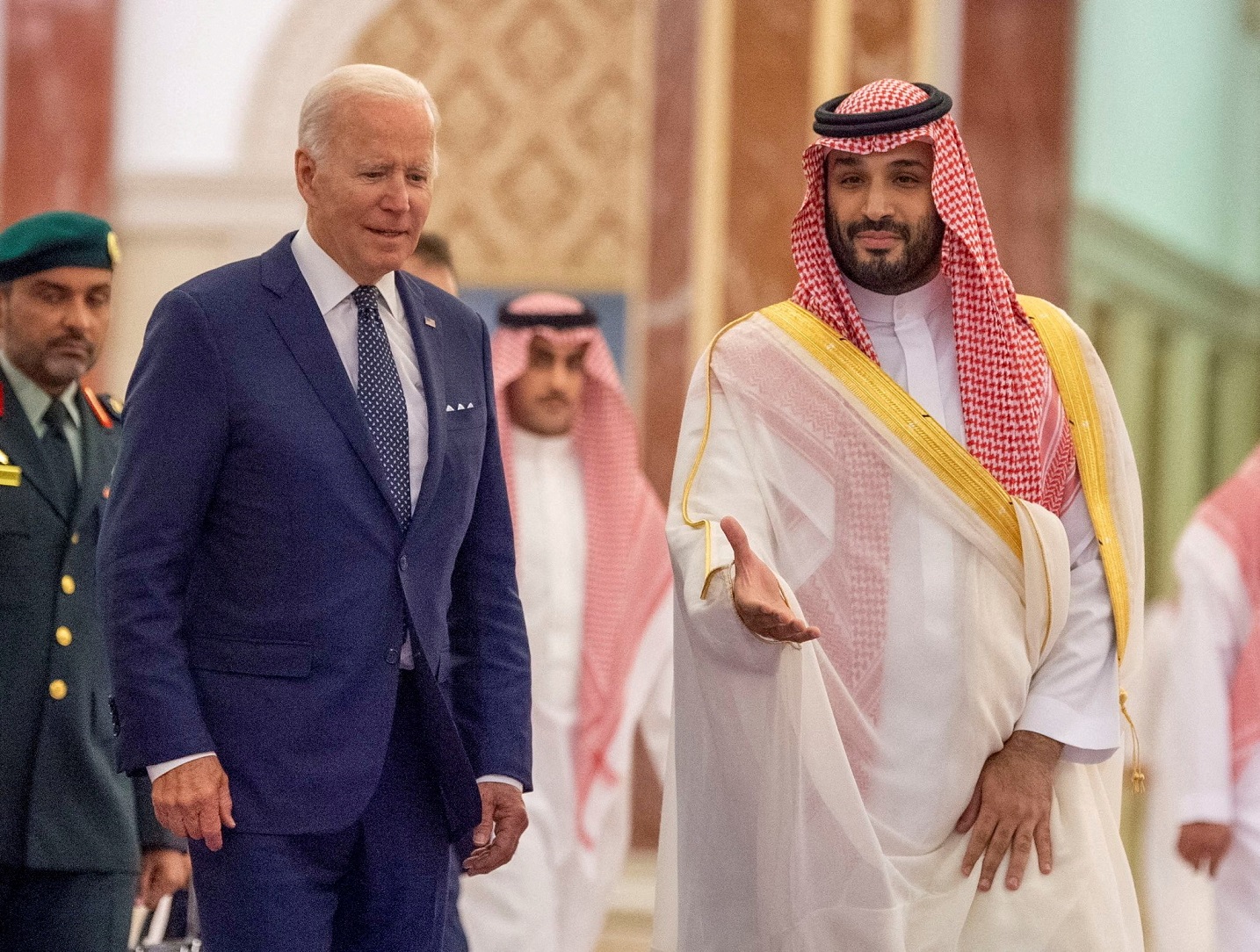Publications
INSS Insight No. 1765, September 20, 2023
In the framework of the regional initiative promoted by the US administration, Saudi Arabia hopes to sign a defense pact with the United States. A strengthened US commitment to an important ally such as Saudi Arabia and an increased US military presence in the Middle East are clearly in Israel’s interest. Therefore, Israel should not have a serious problem with a US security commitment to the Kingdom, including a defense pact between the two countries. However, Jerusalem should try to guarantee that a robust defense pact will obviate US concessions on nuclear matters that could potentially affect Israel’s security.
In recent months the US administration has been engaged in close dialogue with Saudi Arabia, seeking a “major deal” that, according to National Security Advisor Jake Sullivan, who visited Riyadh (in August 2023), would bring stability to the Middle East. This refers to a US-Saudi deal or even a three-way deal between Israel, Saudi Arabia, and the United States that includes normalization between Jerusalem and Riyadh. For its part, Saudi Arabia for some time now has expressed interest in signing a defense pact with the United States.
In recent years the US has also conducted talks on this subject with the United Arab Emirates, so far without success. Now, against the background of the regional initiative led by the administration, the issue of a Saudi-US defense pact has resurfaced, this time as part of the Kingdom’s demands in exchange for normalization with Israel. At the moment, according to administration spokespersons, “We don’t have a framework, we don’t have the terms ready to be signed. There is still work to do,” although according to Sullivan, there was “broad understanding of many of the key elements.” This article examines the feasibility and the significance of the Saudi demand.
The US administration has an interest in turning over a new leaf in its relations with Saudi Arabia, in contrast with the cool relations that prevailed at the start (during his election campaign, President Biden called the Kingdom a “pariah,” and later even threatened “consequences” for its refusal of the US request to increase oil production). The basis for this political reversal is likely the understanding that the United States must respond to China’s attempts to expand its involvement in the Middle East, including the Chinese role in the resumption of relations between Iran and Saudi Arabia. This is also the context for the announcement by President Biden, on the sidelines of the recent G-20 summit in India, regarding an ambitious infrastructure venture to link India with the Mediterranean, with Saudi Arabia as the focus.
In return for implementing the “major deal,” including increasing its security commitment to the Kingdom, the United States will likely and/or apparently ask for the following from the Kingdom:
- Fewer ties between Riyadh and Beijing in various fields, with the emphasis on technological, security, and nuclear cooperation
- More “responsible” Saudi conduct in the field of energy, with consideration for US interests
- Confidence-building measures toward Israel, as part of a normalization process that takes the Kingdom’s sensitivities into account
- Saudi action to bring an end the war in Yemen and work towards a durable peace
- Demands in the area of human rights and the judicial system in Saudi Arabia
- A request of the Saudis to improve and strengthen (and finance) the US logistical military infrastructure in Saudi Arabia.
The idea of improved relations between Saudi Arabia and the United States currently enjoys support in Washington at both ends of the political spectrum. Noticeable in this context is the attempt by Republican Senator Lindsey Graham to persuade his Republican colleagues, including presidential candidate Donald Trump, to support the initiative promoted by the administration. However, it is doubtful whether there is US enthusiasm for taking on any deep international commitment in general, and in the Middle East in particular, especially one that requires the significant and long-term allocation of troops and resources, when more urgent US interests lie in Southeast Asia. At least in the past Saudi Arabia was also sensitive to foreign troops being positioned on its soil, claiming this fuels Islamic extremism, and as a result the US moved them to neighboring Qatar.
The likelihood of US readiness to sign a binding defense pact on the NATO model (Article 5) is also slim, given that it would legally obligate the US to deem an attack on Saudi Arabia as an attack on itself. However, it may be possible to find a common denominator if the Saudis agree to accept an agreement with the US that contributes to security cooperation between the countries but is less binding. A possible model for consideration is the agreement the US recently signed with Bahrain. The Saudis will want a more robust and binding agreement than Bahrain and the US can and should show flexibility in that regard. However, a defense pact is not the only problematic aspect for the administration, where it will have to overcome a great deal of opposition, including from Democratic lawmakers, in the context of the Saudi demand to allow it to develop independent uranium enrichment capabilities on Saudi soil.

For Riyadh, the main interest is US defense against Iranian aggression. The Saudis (unlike Israel) are not worried about restrictions on their freedom of action, since their military power is in any case limited, certainly compared to Iran. Yet a formal defense pact with the United States, particularly one as binding as Article 5 of the NATO treaty (for which the Kingdom would perhaps be required to make more significant concessions to Israel) would raise the chances of US aid in the event of an attack on Saudi Arabia. Riyadh also seeks the tight formality of the emerging agreement with Washington in the context of its increasing doubts in recent years over US willingness to come to its defense, partly in view of the lack of a US response to the Iranian attack on its oil facilities in September 2019. The number of US Central Command (CENTCOM) troops in the region has dropped by 85 percent since the peak number recorded in 2008, and between 2022 and 2023 alone the numbers fell by 15 percent (due to the withdrawal from Afghanistan and Iraq).
A mutual defense pact is not a standard off-the-shelf product. Every international treaty reflects agreement between countries that have the freedom to shape it according to their interests.
- The highest threshold of security treaties and agreements: the NATO treaty, with its Article 5, requires member countries to take steps to assist each other, including with military action, if any member is attacked militarily.
- One step below: the United States can, on the authority of the President, determine that Saudi Arabia is a Major Defense partner (MDP), which does not oblige it to take any military action alongside the Kingdom.
- The lowest level: the United States can determine that Saudi Arabia is a Major Non-NATO Ally (MNNA). This definition allows countries to increase their security and technological cooperation but does not restrict the United States (Israel has this status, along with Egypt, Qatar, Bahrain, and Pakistan, among others).
Reinforcing US commitment to the Middle East and its main allies, such as Saudi Arabia, while increasing its military presence in the Arabian Gulf, is clearly an Israeli interest. Therefore, Israel should have no serious problem if the US enters any security commitment with Saudi Arabia, including a signed defense pact. Indeed:
- Jerusalem and Riyadh already cooperate in various security and intelligence fields, and a US-Saudi agreement could encourage this trend.
- A Saudi-US agreement would help the regional efforts to block the spread of Iranian influence in the area.
- Greater security cooperation between Washington and Riyadh would be grounds to upgrade Israel’s capabilities as “compensation.”
The pact with the US is a central Saudi interest, although it will not be satisfied with a US commitment to its security to agree to normalization with Israel. Riyadh will probably not compromise on its other demands, above all the consent of the US administration to an upgrade of its nuclear capabilities, and particularly the operation of a complete nuclear fuel cycle, including uranium enrichment, on its soil – although it will be hard for both the administration and Israel to agree to this.
This Saudi demand presents Israel, with its clear interest in normalization with Saudi Arabia, with a significant dilemma. While Israel can accept a defense pact between Riyadh and Washington, it must convey opposition to any US concessions on nuclear matters: an independent fuel cycle will allow Saudi Arabia to accumulate nuclear capabilities, knowhow, and materials, and could accelerate the nuclear arms race in other Middle East countries.



